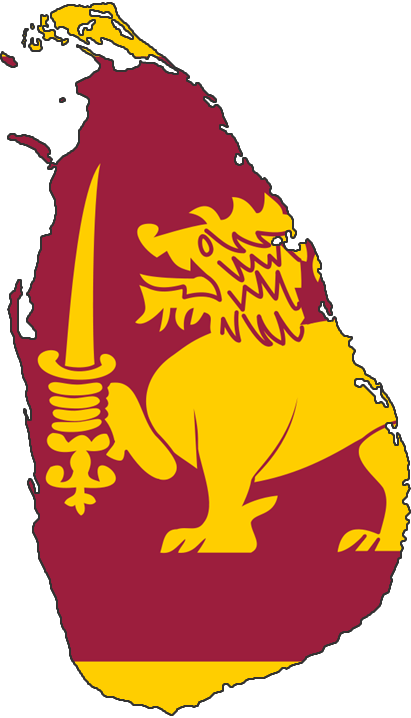(Please note that a version of this article appears on LankaWeb.com. It has been republished here with permission from the author.)
By Fatima Yasmin
Country: Sri Lanka
Muslim religious organisations in Sri Lanka have called on the government to medicalise female circumcision to ensure the procedure is done under hygienic conditions. In their submission before the Parliamentary Committee on Women and Gender early in September, the Muslim groups stated that the Muslim community was very concerned about moves to ban the procedure on the grounds that it was Female Genital Mutilation (FGM).
Spokeswoman Noor Hazeema Haris has reportedly said that although Muslims wholeheartedly have supported the abolition of traditional practices harmful to women and children such as Female Genital Mutilation, the Islamic practice of female circumcision was very different.
She pointed out that the distinction is that female circumcision as practiced by Muslims in Sri Lanka, was a minor procedure, in which only the prepuce or hood of the clitoris was removed.
“It is something that is arranged and done by women. Those who say this is male oppression against women are mistaken. It is we who do it just like our mothers and grandmothers and countless generations of our women have done. We continue to practice it because we know it benefits us. Even educated Muslim women support it wholeheartedly,” she said. “If medical complications have arisen among some women circumcised by Osthamamis (traditional female circumcisors without medical training) as alleged by women’s rights groups, it is all the more reason to medicalise the procedure instead of prohibiting it, which will only drive the procedure underground and put girls and women at unnecessary risk.”
The move is a very dangerous one since it could lead to greater acceptability of FGM. There have been many complaints raised against traditional practitioners including the use of unsterile instruments and harming the clitoris in some cases. However, I believe the solution is to ban it altogether rather than medicalising it.
But analysts warn this could lead to an uproar from religious parties and have political implications since parties that come out against FGM risk losing a large and influential Muslim vote bank. The All Ceylon Jamiyyathul Ulama, an organization of religious scholars in the country issued a fatwa in 2008 stating that female circumcision was obligatory, and was among the parties that made representations to medicalise the practice early in September.
It is also a matter of concern to women’s rights groups that the said Parliamentary committee agreed to accommodate the representations and requested that medical evidence is submitted to prove that female circumcision of the type prescribed in Islam, as stated by these religious groups, causes no harm and benefits women.
A female doctor who performed the procedure before a health ministry circular prohibiting medical professionals from performing it came into effect in the country in October, and whose name has been withheld here by her request, said that she welcomed the move to medicalise it:
“I performed about 25 circumcisions a day in a private clinic, mostly infants. But there were women, too. Some were newly married and wanted to be circumcised at their husbands’ request. All I do is remove a little bit of skin covering the clitoris. I use a very fine instrument for the babies. It takes only a few minutes. In the case of adults, I inject an anesthetic before proceeding to circumcise them. My patients tell me it’s only the injection that hurts a bit and that after that they don’t feel a thing. It’s sore for a few days but heals fast. There is a huge demand for this service. It’s a shame that it’s now going back into the hands of untrained women who have no proper medical knowledge and who use unsterilized instruments for the purpose.”
A young mother who had her infant daughter cut by a traditional practitioner also agreed.
“Doctors refuse to do this now, and I was forced to get it done by an Osthamami. She took out a blade which looked as if it had been used many times and made a cut to my daughter’s genitals. Some blood came out. I could not bear to look. Later I checked it and noticed a cut had been made in the skin over the clitoris but the foreskin had not been removed. This is an improper circumcision according to my sister who is an Aalimah (religious scholar) and so I will have to get her circumcised again. Why are these so-called women’s groups against doctors doing it? We will practice it whether they ban it or not.”
However, a member of a prominent women’s organization said that prohibiting the practice is the right thing to do.
“FGM has been condemned as a violation of the rights of women and girl children by the World Health Organisation. WHO makes no distinction between FGM and the type of circumcision practiced here. It’s all the same. How can you cut these girls and call it a religious obligation? I understand there is a strong religious argument for the practice, but we cannot let religion affect the health of girls and women.”
And so the debate goes on – to ban or medicalise. One thing is for sure. It won’t be easy. Not only does the religious establishment in Sri Lanka, unfortunately, support the practice, but many local women are for continuing it, meaning the government and activists working to end FGM will face many challenges ahead before FGM can be abandoned in Sri Lanka.

